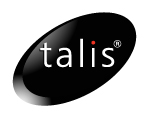Knowledge Injection into and Extraction from Linked Data
Website
http://ontologydesignpatterns.org/wiki/Odp:KIELD2010
Summary
The first workshop on Knowledge Injection to and Extraction from Linked Data (KIELD2010 at EKAW 2010) will gather three prominent sub-communities of Knowledge Engineering and Management: Knowledge Modelling, Knowledge Discovery and Linked Data. The rapid growth of the Linked Data cloud, in parallel with on-the-fly design of relevant vocabularies, presents new opportunities for traditional research disciplines.
Most notably:
Although the popular vocabularies reflect today needs, they sometimes lack deeper ontological reflections. State-of-the-art knowledge modelling, especially the pattern-based ontology design principles, could help connect Linked Data vocabularies to more sophisticated models, while keeping themselves simple. Furthermore, collaborative ontology design methodologies could find their way to the process of vocabulary design, currently undertaken by VoCamp communities and stand-alone groups.
The linked data themselves represent a large and growing resource woven from numerous components. Empirical knowledge discovery in linked data, carried out by machine learning and data mining algorithms, could reveal interesting patterns on frequently used structures, which could then be fuelled back to the vocabulary design. Existing techniques for mining network-structured data, such as graph databases or web links, are likely to require adaptation so as to take account of links that are typed according to semantically rich and heterogeneous schemata.
Aside the EKAW 2010 conference itself, the workshop is informally associated with the series of WOP workshops - Workshops on Ontology Patterns. Participants of the previous successful WOP (1st edition at ISWC2009) are encouraged to submit to KIELD 2010.
By this interdisciplinary nature KIELD2010 aims at being of high interest for both researchers and practitioners of all three areas mentioned above. Furthermore, it will give space to ongoing and pioneering research activities, which would still be too preliminary as conference publications, although extremely hot as topics in the semantic technology field.
ORGANIZERS
Valentina Presutti, ISTC-CNR Rome
Francois Scharffe, INRIA Grenoble Rhone-Alpes
Vojtech Svatek, University of Economics, Prague










